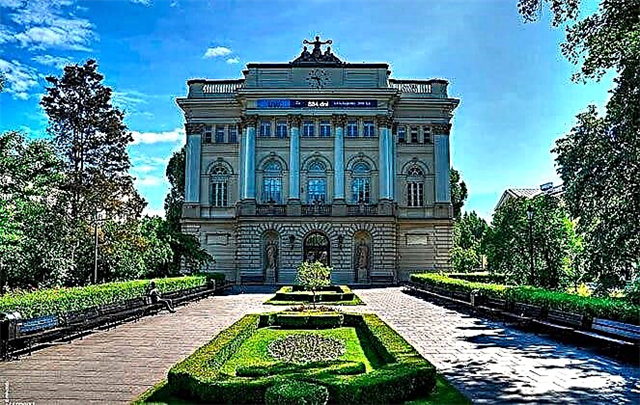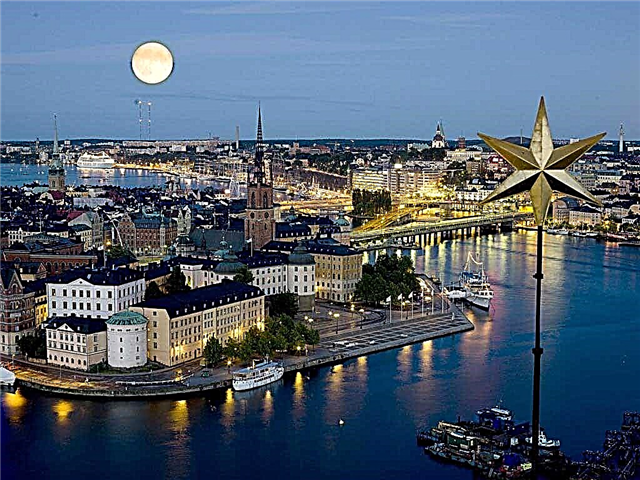The Russian diaspora in Italy has about 135 thousand permanent residents, many of whom are married to Italians. But the procedure and conditions for contracting a marriage in Italy differ from the procedure provided for by Russian law. Therefore, a wedding on Italian territory can cause a lot of difficulties for Russian citizens.

Procedure and conditions for registering a marriage in Italy
The law allows a foreigner residing in Italian territory to enter into an official marriage, even if he does not have a place of residence and permanent residence in the country.
Marriage is contracted in Italy in accordance with the provisions of Section VI of the Codice civile (Civil Code, CC). Marriage is a voluntary union of two persons who meet the conditions established by law and have registered their relationship in the prescribed manner.
Among the conditions for marriage, according to Art. Art. 84-92 SS, includes age of marriage, legal capacity, absence of relationship or act of adoption between the spouses, absence of other valid marriages and other standard conditions. But for a foreigner wishing to marry an Italian, the conditions of matrimony established by the legislation of the country of his nationality will apply. That is, Russians must comply with the conditions established by the Family Code of the Russian Federation, which is documented (Art. 116 SS), but more on that below.
The second important feature is the need for preliminary publication of information about the marriage (Pubblicazione). In accordance with Articles 93, 96 CC, at least 4 days before marriage, prospective spouses must submit a request to the civil registry registrar to publish information about the marriage. Such a publication will contain the names of the spouses, their dates of birth, place of residence, profession and other individual data and will be published on the website of the municipality at the place of residence of each spouse.
Thanks to it, persons who are aware of the existing obstacles to marriage can report them to the registrar. A fee of 16 euros will be charged for such publication.
After the specified period has passed, registration of marriage in Italy is permissible.
Who is registering
The procedure for the official registration of marriage is carried out by the civil registration registrar (Ufficiale dello stato civile), operating at the local municipality. This may be the mayor or deputy mayor, municipal councilor, mayor's secretary, or other authorized person.
An important condition: according to Art. 106 SS, the application for marriage is made in the same prefecture or municipality where the request for publication was made. If necessary and at the request of the future spouses, the ceremony itself is permissible in another municipality. However, this matter must still be checked with the local registrar when applying.
A package of required documents
The main document that a Russian must submit for marriage in Italy is Nulla Osta. Nulla Osta is a document confirming the absence of obstacles for a Russian to conclude a marriage in accordance with Russian law. He proves that the person has reached the required age, is legally capable, has no other contracted marriages and meets the other requirements of the law.

Nulla Osta can be requested at the Russian consulate. The document is issued on the same day, a fee of 32 euros is paid for its issuance.
Other documents will also be required, in particular:
- joint statement of the spouses;
- identity documents of future spouses (for Russians - a passport);
- residence permit card - if available;
- personal statement of marital status and place of residence (autocertificazione) for residence permit holders;
- birth certificate;
- other documents at the request of the registrar.
All documents for Russians must be translated into Italian and apostilled. Documents can be submitted by both the groom and the bride, and even by third parties (by proxy).
Features of the procedure
For some couples, Italian law provides for the specifics of the procedure.
For example, it is not enough for persons who are already married to simply present a copy of the divorce certificate. According to Art. 89 SS, a woman cannot enter into another marriage before the expiration of 300 days from the date of the dissolution of the past.
In order to marry an Italian before the expiration of this period, the permission of the prosecutor must be obtained, which is issued on the condition that the woman presents a certificate of absence of pregnancy or if it is proved that she has not lived with her ex-spouse for the last 300 days.
A similar procedure is provided for cases of death of a former spouse: in addition to the death certificate, you must submit the permission of the prosecutor. It is not required if 300 days have passed since the end of the marriage.
A special permit will also be required for a minor to marry. 84 SS, if there are valid reasons, the court has the right to issue permission for marriage / marriage to a person who has reached the age of 16. In this case, the opinion of the parents of the minor, the opinion of the prosecutor is taken into account, and the psychophysical maturity of such a person is also established.
Official ceremony
In accordance with Art. 107 SS, the wedding ceremony takes place in a special public room at the local municipality. In exceptional cases, if due to objective circumstances one of the spouses cannot be present in the local municipality, the ceremony can be held in a different place.

The presence of two (four, in the case of registration outside the mayor's office) witnesses on the part of the bride and groom is mandatory. If the foreigner does not understand Italian, the registrar will appoint an interpreter for him.
In the presence of witnesses and an interpreter, the registrar reads out to the spouses extracts from the Codice civile about the rights and obligations of spouses, their place of residence, responsibilities in relation to common children, and so on.
After that, the registrar receives from the spouses mutual consent to marry and from that moment declares their union complete. Further, the registrar must find out which regime of matrimonial property the spouses have chosen (if they have not decided, the regime of joint property is established) and whether it is necessary to recognize children born out of wedlock as their common children.
Upon completion of the procedure, the spouses are issued a marriage certificate - certificato di matrimonio. It is signed not only by the registrar, but also by the spouses themselves, who must first familiarize themselves with its content.
In accordance with Art. 102 SS, parents, guardians, legal spouses of persons entering into marriage, as well as the prosecutor, if there are reasons preventing his conclusion, must declare this. In this case, registration will be refused.
Church marriage in Italy
The procedure described above is called a formal civil marriage (Il matrimonio civile). Along with it, according to Art. 82-83 SS, the state recognizes church, religious marriage (Il matrimonio religioso). It entails the same legal consequences as a civil one, but at the same time it has some peculiarities.
Italian law distinguishes between Catholic and non-Catholic ecclesiastical marriages and their legal status is different. Thus, the recognition of a Catholic marriage is due to the 1929 Concordat concluded between Italy and the Holy See (Concordato lateranense). Such a marriage is permissible only if one of the spouses is a member of the Catholic Church.

Even before the wedding, a couple wishing to enter into a Catholic marriage must undergo a so-called premarital course (Il corso prematrimoniale) lasting 2-3 months. As a result, they receive a certificate from the priest and permission to marry. It is permissible to conduct the ceremony in any parish chosen by the bride and groom. In addition to the standard civil documents, the couple presents to the priest:
- baptismal certificate;
- a certificate of completion of a premarital course;
- certificate of “free ecclesiastical status” (Stato libero ecclesiastico), confirming that the person has not previously entered into a religious marriage;
- "Church clearance" - a document allowing the ceremony to be held in another parish, outside the municipality of residence of the future spouses.
After preparing all the documents, the priest examines the situation for the absence of obstacles to marriage, conducts a conversation with the couple and sends a request for publication to the local municipality, and also publishes information about the spouses on the information resource of the local parish. The wedding itself is possible 8 days after publication.
The ceremony takes place according to the canonical rules of the Catholic Church, but in any case it involves the mutual consent of the spouses, the participation of witnesses, as well as the reading to the spouses of their rights and obligations. The spouses are issued a marriage certificate, a copy of which is sent by the priest to the municipality within 5 days.
Along with Catholic unions, the state recognizes non-Catholic ecclesiastical unions committed before priests of other confessions. But, unlike Catholic, such a marriage is performed in accordance with the requirements of civil law (Art. 83 SS). In fact, this is some form of civil marriage, and the priest himself acts as a delegate to the registrar of acts of civil status.
Residence permit and citizenship in Italy on the basis of marriage
In accordance with Art. 29 of Law No. 286/1998 Italians, as well as foreigners living in Italy on the basis of a residence permit for at least 1 year, have the right to invite their close relatives to move to Italy for family reunification (Ricongiungimento familiare). This includes the spouses. On this basis, they can obtain a residence permit in Italy.
For such a reunification, it must be proven that there is sufficient housing for living with a spouse, the provision of medical insurance, as well as income in the amount of at least the annual amount of social benefits (in 2021 5.9 thousand euros) + 50% of this amount for the spouse, if he has no independent income.
After 2 years of marriage in Italian territory (1 year in the presence of common children, including adopted children) or 3 years outside of it (1.5 years), provided that the spouse is Italian, the foreigner has the right to obtain citizenship in Italy ... Marrying an Italian is perhaps the fastest way to obtain an Italian passport.
Organization of marriage in Italy for Russians
Getting married in Italy is not only possible for those who live in the country, or those whose spouses are Italian. Known for its unique flavor and romance, it also attracts couples permanently residing in Russia. In Italy, they can conclude both an official union at the city hall at the place of residence, and a symbolic marriage, consisting in a beautiful ceremony without official registration.

To save the young people from unnecessary trouble, Russian wedding agencies organize special wedding tours to Italy for the married couple. Depending on the possibilities and desires, the couple can organize a lavish wedding ceremony with many guests and official registration, for example, at the Roman City Hall, or a modest symbolic ceremony on the shores of the Mediterranean Sea.
The budget for such an event starts from 1.5-2 thousand euros for two people with accommodation. The cost increases in proportion to the number of guests that young people wish to invite.
Is Italian marriage recognized in the Russian Federation?
If you marry an Italian, according to Art. 158 of the RF IC, such a marriage will be recognized not only in Italy, but also in Russia. The two main conditions are compliance with Italian laws and the absence of the obstacles provided for in Art. 14 SK.
Such recognition, however, does not happen automatically. A marriage certificate issued in Italy must be translated into Russian and apostilled by the competent Italian authorities, including the Italian consulate in the Russian Federation. After that, the Russian can come to the Russian registry office and, having submitted the specified documents, enter the marriage record in his internal passport.
Family life in Italian
Russians who marry Italians do not immediately understand the Italian family way of life and the local affection for the family. Italians honor their traditions, because their families are traditionally large and consist not only of spouses and children, but also many other close (and not so) relatives.
The patriarchal order puts a man at the head of the family, women, despite their temperament, recognize their second role, including in making important family decisions.
For an Italian man, a wife is an object of worship for beauty and skill in housekeeping. And when children appear, Italian men gladly take on some of the household chores. The woman is called upon to preserve the home, and she is also entrusted with raising children. By the way, they are the real flowers of life - they begin to pamper them from birth, being proud of each of their smallest achievements in the future.

Despite this, the Russian-Italian marriage unions are not particularly strong and durable. According to the Russian Embassy in Italy, most of such marriages break up in the first 3-5 years after the wedding: the lack of work for one of the spouses, cultural differences, different understanding of the role of spouses in the family and approaches to raising children.
Fictitious marriages in Italy
Since marriage is the basis for obtaining a residence permit and even Italian citizenship, fictitious marriages (unions without the purpose of creating a family) are widespread in Italy. Whole groups operate, which in such a simple way help foreigners settle on the Apennine Peninsula. The cost of such services ranges from 4 to 10 thousand dollars.
In 2021, the Italian carabinieri staged a real hunt for such illegal immigrants. Several operations were carried out, as a result of which more than 40 cases of fictitious marriages were revealed. It is believed that their total number reaches 1.2 thousand per year.
Foreigners are not even stopped by the threat of being prosecuted - if a fictitious marriage is discovered, the marriage is not simply annulled: foreigners are prosecuted for “complicity in illegal migration”. The standard punishment for them is a year in prison and several thousand euros in a fine.
Divorce with an Italian citizen
Divorce in Italy differs significantly from the Russian procedure. Until 2021, divorce took at least 3 years, but today these terms have been reduced. An abbreviated divorce usually lasts:
- 1 year, if it is divorce in court (separazione giudiziale) - in the absence of mutual agreement on controversial issues;
- 6 months if it is a divorce by mutual consent (separazione consensuale), which can be announced before a judge, mayor's office or lawyer.
These terms assume separation, after which the spouses will be able to move on to the stage of final divorce. If, as a result of their separation, their family relations have not resumed, they, if there is a mutual desire to divorce, may apply:
- to the court, where already in the first hearing the court approves the divorce;
- to their lawyers, who, based on the results of negotiations, will draw up an act regulating divorce legal relations, division of property, alimony and other aspects;
- to the registrar (if there are no common children and all financial issues are independently resolved), who draws up a divorce 30 days after the first appeal.
Conclusion
All things considered, getting married to an Italian citizen has many advantages and disadvantages. The pluses include:
- the right to obtain a residence permit and Italian citizenship;
- the possibility of legalizing marriage in the Russian Federation;
- high standard of living in Italy;
- the right to reside in the country even after divorce;
- obtaining Italian citizenship by common children.
The disadvantages traditionally include:
- mental, religious and cultural differences with Italians;
- the need to legalize and translate documents before marriage;
- lengthy and troublesome divorce procedure;
- often - financial dependence on the Italian spouse.
Marriage in Italy can be concluded both civil and ecclesiastical: both are recognized by the state and have legal consequences.











